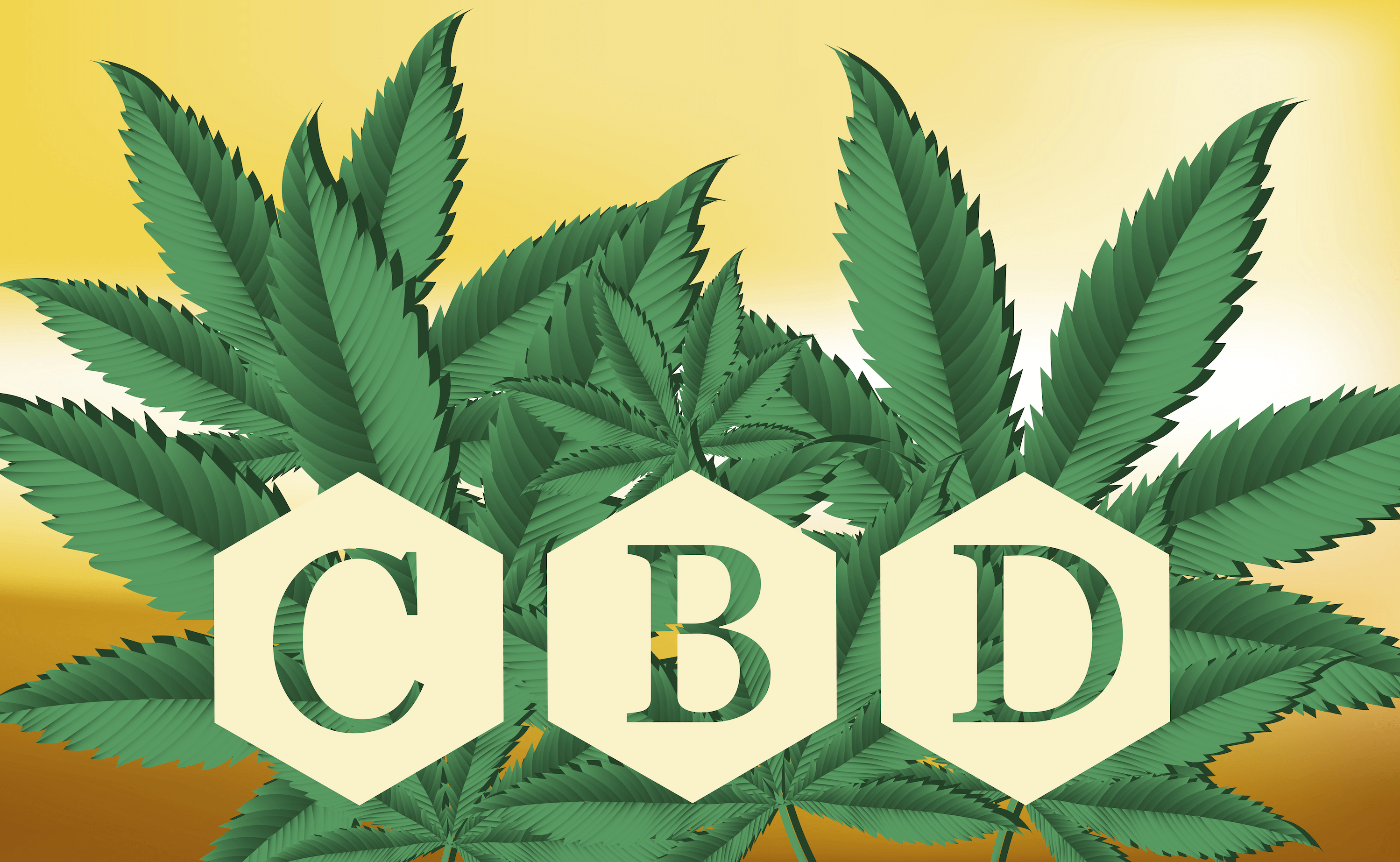Latest Blog Posts
Top rated

How To Use CBD Oil For Better Health
CBD oil is becoming increasingly popular as a natural remedy for a variety of health conditions. But what exactly is CBD oil and what are its potential health benefits? In this article we'll take a look at CBD oil and its benefits for the body, skin, and hair. We'll also explore some of the potential side effects of CBD oil. Finally, we'll give some tips on how to use CBD oil for better health.
CBD oil is known to offer a wide range of potential health benefits. For example, it may help reduce inflammation, anxiety, digestive problems and chronic pain.
CBD Oil and Anxiety

Anxiety is a normal emotion that we all experience at one point or another. However, for some people, anxiety can become more than just an occasional feeling – it can become a chronic condition that interferes with their daily lives. If you’re struggling with anxiety, know that you’re not alone and you may be looking for relief.
Anxiety disorders are the most common mental health condition in the United States, affecting 40 million adults. Anxiety is also a byproduct of other conditions such as post traumatic stress disorder. While there are many effective treatments available, some people prefer to seek out natural remedies including cannabis derived products. CBD oil is one such remedy that is gaining popularity as a form of medical cannabis for its potential to relieve anxiety symptoms. But what is CBD oil and how does it work?
CBD oil is derived from the cannabis plant. It contains cannabidiol (CBD), which is a compound known to have anti-anxiety and anti-inflammatory properties.
Cannabidiol, or CBD oil, is a natural remedy that has become popular for treating a variety of health disorders. CBD oil is made from the cannabis plant. However, unlike marijuana, it does not have psychoactive properties. This means that it will not make you high if you buy CBD oil and consume it for any purpose you deem necessary.
CBD has also been shown to have anti-anxiety and anti-inflammatory properties in animal studies. These effects may be due to the action of CBD on the brain's receptors for serotonin, a neurotransmitter that plays a role in mood and anxiety disorders. It is thought to work by interacting with the body's endocannabinoid system. Similar conclusions have been reached with respect to hemp seed and hemp derived CBD products.
The Endocannabinoid System
The endocannabinoid system (ECS) is a widespread neuromodulatory system that plays important roles in central nervous system (CNS) development, synaptic plasticity, and the response to endogenous and environmental insults.
The ECS is comprised of cannabinoid receptors, their endogenous ligands (endocannabinoids), and the enzymes responsible for endocannabinoid biosynthesis and degradation.
CBD and THC are the most well-known cannabinoids, but there are many others that play a role in modulating the ECS.
The ECS is involved in a variety of physiological processes including pain perception, inflammation, appetite, mood, memory, and sleep. It also has been shown to be protective against a variety of neurological disorders including Alzheimer’s disease, Parkinson’s disease, multiple sclerosis, and stroke. Given the importance of the endocannabinoid system (ECS) in maintaining health and homeostasis, it is not surprising that there is growing interest in using cannabinoids as therapeutic agents.
Cannabinoids can be administered exogenously (e.g., via marijuana or CBD products) or endogenously (e.g., via the body’s own production of cannabinoids). When used therapeutically, cannabinoids have been shown to be effective in treating a wide range of conditions including pain relief and inflammatory and neuropathic pain.
The two primary cannabinoid receptors are CB1, which is predominantly expressed in the brain, and CB2, which is predominantly expressed in the periphery. However, both receptors are present throughout the body, with varying levels of expression. Endocannabinoids are lipophilic molecules that bind to these receptors and activate them. The two best-studied endocannabinoids are anandamide and 2-arachidonoylglycerol (2-AG).
Enzymes responsible for endocannabinoid biosynthesis include Fatty Acid Amide Hydrolase (FAAH) and Monoacylglycerol Lipase (MAGL). These enzymes catalyze the breakdown of anandamide and 2-AG, respectively. FAAH is primarily found in neurons while MAGL is found in glial cells.
Endocannabinoids play important roles in various physiological processes including pain modulation, immune function, appetite control, energy balance, neuroprotection, and more. Dysregulation of the ECS has been implicated in various diseases including cancer, obesity, diabetes, neurodegenerative disorders, psychiatric disorders, and others.
While more research is needed to fully understand the potential therapeutic benefits of CBD oil, there is promising evidence that suggests that CBD oil may offer a safe and effective way to treat anxiety and depression. It is important to note that different types of CBD oils have different effects on your body.
CBD oils are usually available in different forms. The most common are isolate, broad-spectrum, and full-spectrum. Isolate CBD oil contains only cannabidiol, with no other cannabinoids.
Broad-spectrum CBD oil contains cannabidiol along with other cannabinoids but minus the THC. Full-spectrum CBD oil contains all the compounds found in the cannabis plant, including THC.
The Different Types of CBD Oil
- Isolate CBD Oil
Isolate CBD oil contains only cannabidiol and no other cannabinoids. This type of oil is ideal for people who want the potential benefits of CBD without any traces of THC.
- Broad-Spectrum CBD oil
Broad-spectrum CBD oil contains all the cannabinoids found in the hemp plant, including trace amounts of THC. This type of oil is ideal for people who want the potential benefits of all the cannabinoids but don't want any THC in their system.
- Full-Spectrum CBD oil
Full-spectrum CBD oil contains all the cannabinoids found in the hemp plant, including THC. This type of oil is not just CBD and it is ideal for people who want the potential benefits of all the cannabinoids, including THC.
How to Consume CBD to Treat Anxiety
CBD oil can be consumed in many different ways to treat anxiety.
One way is by taking it orally in the form of drops or capsules. Another way is to apply it topically to the skin in the form of a cream, gel, or balm. It can also be inhaled using a vape pen or inhaler.
Each method of administration has its own set of benefits and drawbacks. For instance, taking CBD oil orally is generally considered to be the most effective way to experience its full effects, but it can take up to an hour for those effects to kick in.
Topical application is thought to be more immediate, but it may not provide as long-lasting relief. Inhaling CBD oil provides the quickest relief, but it may not be as potent as other methods.
The best way to find out which method works best for you is to experiment and see what provides the most relief for your particular anxiety symptoms.
Choose the Right Type of CBD Oil
When choosing a CBD oil for anxiety, it's important to select the right type of oil. As we already covered there are three main types of CBD oil: isolate, broad-spectrum, and full-spectrum. Isolate oil contains only CBD, while broad-spectrum oil contains a range of cannabinoids, including CBD. Full-spectrum oil contains all the cannabinoids found in hemp plants.
Start with a low dose
The amount of CBD oil that you should take for anxiety depends on a few factors, including your weight, the severity of your anxiety, and your body's individual response to CBD oil. In general, it is best to start with a low dose of CBD oil and increase gradually as needed. For most people, taking 10-20mg of CBD oil per day is a good starting point. If you are unsure about how much CBD oil to take for anxiety, it is always best to speak with a healthcare professional before starting any new supplement regimen.

The first step when using CBD oil for anxiety is to start with a low dose. It’s important to begin slowly in order to give your body time to adjust to the effects of CBD. Starting with a low dose also helps you avoid any potential side effects that might occur at higher doses. You can gradually increase the dose as needed until you find the amount that works best for you.
Increase the dose gradually
If you find that your initial dose isn’t effective, don’t be discouraged—it may just take a little longer for the CBD to take effect. Try increasing the dose gradually over time until you find the amount that works best for you.
It is especially important for businesses that sell CBD products to inform their customers about the gradual increase of dosage particularly for those who are seeking CBD to reduce severe forms of withdrawal symptoms, muscle spasticity, or looking for an alternative to antipsychotic drugs and other medications.
Use CBD oil consistently
CBD oil is most effective when used consistently over time. For this reason, it’s important to make sure that you use it on a regular basis and at the same time each day if possible. This will help ensure that the CBD has a chance to build up in your system and reach its full potential. The consistency is especially important for cancer patients who are seeking to find ongoing relief from cancer pain including the serious adverse effects from cancer treatment.
CBD Oil and The Digestive System

If you're one of the many people struggling with digestive issues, you may be wondering if CBD oil can help. Let’s take a look at how CBD can be used to relieve digestive problems like constipation, diarrhea, and irritable bowel syndrome (IBS). We'll also explore the potential benefits of using CBD oil for gut health and discuss the risks involved.
As we already mentioned, CBD oil may also be beneficial for treating various digestive issues, including irritable bowel syndrome (IBS), Crohn's disease, ulcerative colitis, constipation, diarrhea, gut health, appetite, nausea, and digestion-related pain.
CBD Oil and IBS
If you suffer from irritable bowel syndrome (IBS), you know that the condition can be extremely debilitating. Symptoms like abdominal pain, bloating, gas, diarrhea, and constipation can make everyday activities seem impossible. And while there is no cure for IBS, CBD oil has been shown to be effective in reducing symptoms of irritable bowel syndrome (IBS) and improving your quality of life. A recent study published in the National Library of Medicine takes a deep dive on the role of cannabinoids in Gastrointestinal Mucosal Defense and Inflammation and overall effects of cannabinoids on gastric functions.
Another study, published in the journal Neurogastroenterology & Motility, found that CBD oil was effective in reducing intestinal inflammation in patients with IBS.
CBD Oil and Crohn's Disease
Crohn's disease is an inflammatory bowel disease (IBD) that can affect any part of the gastrointestinal tract from the mouth to the anus. It is a chronic condition, which means it can last for months or even years, and symptoms may come and go. The most common symptoms of Crohn's disease are abdominal pain, diarrhea, weight loss, and fatigue. However, Crohn's disease can also cause other problems outside of the GI tract, such as skin rashes, eye inflammation, joint pain, and liver disease.
There is no one cause of Crohn's disease. Instead, it is thought to be caused by a combination of genetic and environmental factors. Some people with Crohn's disease have a family history of the condition, suggesting that genetics may play a role. Additionally, certain environmental factors are thought to trigger Crohn's disease in people who are genetically predisposed to the condition. These triggers are not yet known but may include diet, stress, medications, or infections.
Crohn's disease is diagnosed through a combination of medical history, physical exam, blood tests, stool tests, imaging studies (such as X-rays or CT scans), and endoscopy/colonoscopy. Treatment for Crohn's disease typically involves medication (such as anti-inflammatory drugs or immunosuppressants) and lifestyle changes (such as diet modification or stress reduction). Surgery may also be necessary in some cases.
A recent study published in the journal Clinical Gastroenterology and Hepatology found that CBD oil was able to reduce inflammation and improve quality of life in participants with Crohn's disease. CBD was shown to decrease the number of inflammatory cells in the colon and reduce intestinal damage.
In addition, CBD has also been shown to help with other gastrointestinal issues associated with Crohn's disease. One study found that CBD was able to decrease intestinal motility (movement) in rats with colitis.
This effect could potentially help relieve diarrhea, one of the most common symptoms of Crohn's disease.
While there is no cure for Crohn's disease currently available, CBD aims to reduce symptoms and improve quality of life.
CBD Oil and Ulcerative Colitis
If you're suffering from ulcerative colitis, you may be wondering if CBD can help. As we have already mentioned, CBD is a natural compound that has been shown to reduce inflammation and pain, and improve gut health. Let’s take a look at how CBD can help heal ulcerative colitis, and the best CBD products for treating this condition.
CBD for Ulcerative Colitis: What You Need to Know!
What is Ulcerative Colitis?
Ulcerative colitis is a type of inflammatory bowel disease (IBD) that affects the large intestine or colon. IBD is a chronic condition that causes inflammation and ulcers in the digestive tract. Ulcerative colitis is characterized by long-term inflammation of the inner lining of the colon. The exact cause of ulcerative colitis is unknown, but it's thought to be due to a combination of genetic and environmental factors.
There are two main types of IBD: Crohn's disease and ulcerative colitis. Ulcerative colitis is further divided into five subtypes, depending on which part of the colon is affected:
- Erosive esophagitis: This form affects the esophagus, the tube that carries food from your mouth to your stomach.
- Gastroduodenal Crohn's disease: This form affects the stomach and first part of the small intestine (duodenum).
- Crohn's colitis: This form affects the large intestine or colon.
- Ileocolitis: This form affects the last part of the small intestine (ileum) and the beginning of the colon.
- Universalis: This rare form affects the entire digestive tract from mouth to anus.
Symptoms of ulcerative colitis can vary from mild to severe, and may include abdominal pain, diarrhea, rectal bleeding, weight loss, fatigue, and anemia. Left untreated, ulcerative colitis can lead to serious complications such as malnutrition, dehydration, and even life-threatening blood infections. There is no cure for ulcerative colitis, but there are treatments available to help manage symptoms and prevent flares.
Symptoms of Ulcerative Colitis
The symptoms of ulcerative colitis can vary from person to person and range from mild to severe. The most common symptoms include:
- Abdominal pain or cramping
- Diarrhea (which may be bloody)
- Rectal bleeding
- Weight loss
- Fatigue
- Anemia (low red blood cell count)
- Other less common symptoms include:
- Fever
- Joint pain
- Mouth sores
Symptoms usually develop gradually over time, but they can also come on suddenly and without warning (known as a flare). Flares can last for days or weeks, then go into remission (a period with no symptoms). Some people with ulcerative colitis only have one flare in their lifetime while others have multiple flares throughout their life. There is no way to predict when a flare will happen or how long it will last.
How CBD Can Help Heal Ulcerative Colitis
CBD oil has been shown to be effective in treating ulcerative colitis as well. A study published in the Journal of Clinical Investigation found that CBD oil was able to reduce inflammation and promote healing of the colonic mucosa in rats with ulcerative colitis. Another study, published in the journal Inflammatory Bowel Diseases, found that CBD oil was effective in reducing symptoms of ulcerative colitis in humans. Studies suggest that hemp oil has also been effective in reducing these symptoms.
- Inflammation
CBD has powerful anti-inflammatory effects that can help to reduce the inflammation associated with ulcerative colitis. A study published in the Journal of Clinical Investigation found that CBD was able to reduce inflammation in mice by reducing the production of pro-inflammatory cytokines.
- Pain
CBD can also help to reduce pain, which is often a symptom of ulcerative colitis. A study published in the European Journal of Pain found that CBD was effective at reducing pain and inflammation in rats.
- Gut Health
CBD may also help to improve gut health, which is often compromised in those with ulcerative colitis. A study published in Frontiers in Pharmacology found that CBD was able to increase the number of regulatory T cells in the gut, which are responsible for maintaining gut homeostasis.
If you suffer from ulcerative colitis, you know that the symptoms can be debilitating. Try natural remedies including CBD to treat ulcerative colitis. Studies suggest particularly those with clinical trials which included a placebo group that nonprescription CBD products, dietary supplements, medical cannabis, can all be adequate natural solutions to ulcerative colitis.
The Best CBD Products for Ulcerative Colitis
CBD Capsules
CBD capsules are a convenient way to take CBD oil, as they provide a pre-measured dose of CBD. Capsules are easy to take with you on the go and can be taken with or without food. For best results, it is recommended to take CBD capsules that are high in cannabidiol (CBD) and low in THC.
CBD Edibles
CBD edibles are a great option for those who do not like the taste of CBD oil or who want an easy way to take their daily dose of CBD. There are many different types of CBD edibles available, including gummies, candy, cookies, and brownies. For best results, it is recommended to choose CBD edibles that are high in cannabidiol (CBD) and low in THC.
CBD Oil and Constipation
If you're one of the many people suffering from constipation, you may be looking for relief. And while there are many over-the-counter options available, you may be wondering if CBD oil could help.
As far as constipation goes, CBD oil may help by reducing inflammation in the gut and stimulating bowel movements. It can also relax the muscles in the intestines, making it easier to pass stool.
If you're considering using CBD oil for constipation relief, it's important to know the proper dosage. Start with a low dose and increase gradually until you find relief. It's also important to be aware of any potential side effects, which are usually mild and include diarrhea, dry mouth, and fatigue.
What are the Dosages of CBD Oil for Constipation?
CBD oil can help with constipation in a few different ways. First, it can help to relax the muscles in the digestive tract, which can make it easier for stool to pass through. It can also help to increase the production of mucus, which lubricates the stool and makes it easier to pass. Finally, CBD oil can help to reduce inflammation in the gut, which can also contribute to constipation relief.
The dosage of CBD oil for constipation will vary depending on the severity of the condition and the individual's response to treatment. For mild cases, a lower dose may be sufficient. For more severe cases, a higher dose may be necessary. It is important to start with a low dose and increase gradually as needed in order to avoid side effects such as diarrhea.
It is also important to note that CBD oil should not be used as a replacement for traditional medical treatment for constipation. If you are experiencing chronic or severe constipation, please consult your doctor before trying CBD oil.
Are There Any Side Effects of CBD Oil for Constipation?

CBD oil is generally safe and well-tolerated, but there are some potential side effects of using it for constipation relief. These include dry mouth, diarrhea, drowsiness, and changes in appetite. Most of these side effects are mild and temporary.
How Long Does It Take for CBD Oil to Work for Constipation?
CBD oil usually begins working within an hour or two after taking it.
CBD oil is a natural remedy that can be used to relieve constipation. It is safe and effective, and has few side effects. CBD oil can be taken in different dosages depending on the severity of the constipation. For most people, CBD oil will start working within a few hours, and will provide relief from constipation within a day or two.
CBD Oil and Diarrhea
CBD oil is a safe and effective treatment for diarrhea. It can be taken orally or rectally, and it works by reducing inflammation in the digestive tract. CBD oil dosages for diarrhea vary depending on the severity of the symptoms, but most people find relief with a dose of 10-20mg per day. CBD oil typically starts working within an hour, and the effects can last up to 6 hours. Side effects are rare, but may include dry mouth, dizziness, and gastrointestinal distress.
In a study published in the Journal of Clinical Gastroenterology, researchers found that CBD oil was able to help patients with chronic diarrhea by reducing stool output and frequency of bowel movements. The study participants who were given CBD oil also experienced an improvement in symptoms such as abdominal pain and bloating.
CBD Oil Dosage for Diarrhea Relief
The recommended dosage of CBD oil for diarrhea relief is 25-50 mg per day. Start with a low dose and increase as needed.
How Long Does It Take for CBD Oil to Work for Diarrhea Relief?
CBD oil should start working within an hour or two. If you don't notice any improvement after a few hours, try increasing the dose but make sure to consult with your doctor before doing so.
Potential Side Effects of Using CBD Oil for Diarrhea Relief
Possible side effects of using CBD oil for diarrhea relief include dry mouth, drowsiness, and lightheadedness.
CBD Oil and Gut Health
The human gut is home to a complex and vital ecosystem of bacteria, and maintaining a healthy balance of these microbes is essential for overall health. Unfortunately, modern lifestyles and diets can disrupt this delicate balance, leading to digestive problems like inflammation, diarrhea, and constipation.
CBD oil is emerging as a potential solution for gut health issues. CBD (cannabidiol) is a compound found in cannabis plants that has been shown to have anti-inflammatory and other beneficial effects in animal studies. Some people believe that CBD oil may help to restore balance in the gut by reducing inflammation and promoting healthy digestion.
Let’s take a closer look at the evidence for CBD oil as a treatment for gut health issues. We'll also provide some practical tips on how to use CBD oil for gut health.
In a study published in the journal Frontiers in Pharmacology, researchers found that CBD oil was able to help reduce inflammation in the GI tract of patients with inflammatory bowel disease (IBD). The study participants who were given CBD oil also experienced an improvement in gut motility and barrier function.
CBD Oil and Gut Bacteria
CBD oil may also have an impact on gut bacteria. In one study, rats treated with CBD had an increase in levels of good bacteria while bad bacteria levels decreased. It is thought that CBD does this by inhibiting the growth of bad bacteria while promoting the growth of good bacteria.
CBD Dosage for Gut Health
The dosage of CBD oil for gut health will vary depending on the individual and their condition. It is important to start with a low dose and increase gradually as needed. A common starting point is 2.5-5 mg of CBD oil per day.
Application Methods
There are a few different ways to use CBD oil for gut health. The most common method is to take it orally, either in drops or capsules. It can also be added to food or beverages, or applied topically to the skin.
When taking CBD oil orally, it is important to hold the oil under the tongue for at least 60 seconds before swallowing, to allow for proper absorption. For topical application, it is best to apply it to a clean, dry area of skin and massage it until fully absorbed.
CBD Oil and Weight Loss
CBD oil is effective for weight loss because it helps to boost metabolism and regulate appetite. CBD oil works by stimulating the body’s natural ability to burn fat, which leads to weight loss. In addition, CBD oil suppresses appetite by interacting with the body’s endocannabinoid system, which regulates hunger and satiety.

A study in the Journal of Clinical Investigation found that CBD reduced food intake in rats by increasing levels of the hormones responsible for satiety. CBD oil may also boost metabolism and promote the breakdown of fat cells (adipocytes). A study published in the International Journal of Obesity found that rats treated with CBD had lower body weight, lower body fat, and smaller waist circumference than those in the control group.
CBD Oil and Appetite Suppression
CBD oil has been shown to help reduce appetite in a variety of ways. For example, it can help you feel full for longer after eating, it can reduce cravings and snacking, and it can help you eat less overall. All of these effects together can lead to weight loss.
Another study published in the Journal of Experimental Medicine found that CBD suppressed appetitive behaviors in rats by acting on the central nervous system (CNS) receptors responsible for hunger and satiety. The authors concluded that "CBD could represent a novel therapeutic target for treating eating disorders."
As you can see there are many benefits of using CBD oil for appetite control. First, it can help you lose weight by reducing your overall calorie intake. Second, it can help you control your hunger and cravings, so you're less likely to overeat or snack throughout the day. Third, it can boost your metabolism, which will also help you burn more calories and lose weight. Lastly, it's a natural way to control your appetite, so you don't have to rely on unhealthy methods like crash diets or famine-style eating plans.
While more research is needed to confirm these effects, CBD oil may be a helpful addition to your weight loss journey. Talk to your doctor about whether CBD oil is right for you and how to use it safely.
CBD Oil and Nausea
A number of clinical studies have been conducted on the use of CBD oil for nausea, with promising results. One study found that CBD was effective in reducing chemotherapy-induced nausea and vomiting in cancer patients.
Another study looked at the effect of CBD on postoperative nausea and vomiting, finding that it was effective in reducing symptoms in patients who had undergone surgery.
- CBD oil and chemotherapy-induced nausea and vomiting
CBD oil has been shown to be effective in reducing chemotherapy-induced nausea and vomiting (CINV). A study published in the Journal of Cancer Chemotherapy and Pharmacology in 2018 looked at the effect of CBD on CINV in animal models. The study found that CBD was able to reduce the incidence of vomiting and nausea, as well as the severity of these symptoms.
- CBD oil and pregnancy-related nausea
Pregnancy-related nausea, also known as morning sickness, is a common complaint during pregnancy. A study published in Frontiers in Pharmacology in 2018 investigated the effect of CBD on pregnancy-related nausea. The study found that CBD was effective in reducing the severity of nausea and vomiting in pregnant women.
What Do the Experts Say?
The majority of experts agree that CBD oil is an effective treatment for nausea. Dr. Suzie Glasky, a naturopathic doctor specializing in cannabis therapeutics, says: "CBD is a very safe antiemetic [anti-nausea] agent with few side effects. It is well tolerated by most people, even at high doses."
Dr. Ethan Russo, a neurologist and researcher who has studied the therapeutic effects of cannabis extensively, also believes that CBD oil is an effective treatment for nausea: "CBD has definite antiemetic [anti-nausea] properties...well worth further clinical exploration."
So, if you're looking for an effective treatment for nausea, CBD oil is a good option to consider.
CBD Oil and Digestion-Related Pain
CBD oil has been shown to be effective in reducing abdominal pain, as well as pain from GERD and gastritis. A study published in the Journal of Clinical Gastroenterology found that CBD was able to reduce stomach acid secretion, as well as inflammation in the gastrointestinal tract. Additionally, a review of studies published in Frontiers in Pharmacology found that CBD was effective in reducing nausea and vomiting, as well as other digestive issues like constipation and diarrhea.
What are the Risks of CBD Oil?
Keep in mind that the FDA does not regulate CBD oil, which means that it is not subject to the same safety and quality standards as other medications. This means that there is no guarantee that CBD oil is safe or effective.
While CBD oil is generally well tolerated, there are some potential side effects to be aware of when using it for anxiety relief. These include dry mouth, drowsiness, and digestive issues like diarrhea or abdominal pain. If you experience any of these side effects, reduce your dose or stop using CBD altogether until they subside.
- Drowsiness
CBD oil may cause drowsiness in some people. If you are taking CBD oil and experience drowsiness, it is best to avoid operating heavy machinery or driving a vehicle.
- Digestive Issues
Even though we have covered all possible benefits of CBD on your digestive system above, there is a potential risk of digestive issues due to excessive use of CBD oil. Excessive use of CBD oil can cause diarrhea and nausea in some people. If you experience these side effects, it is best to stop taking CBD oil and consult with a doctor.
- CBD oil may interact with other medications you take
CBD oil may interact with other medications, including prescription and over-the-counter drugs. It is important to talk to your doctor before taking CBD oil if you are taking any other medications, as it could potentially cause adverse effects.
Consult with Your Healthcare Professional
CBD oil is a natural remedy that can help with a variety of digestive issues. From weight loss to Crohn's disease, CBD oil has been shown to be effective in managing symptoms and improving quality of life. Additionally, CBD oil can help with appetite, weight loss, nausea, and pain associated with digestion. If you're looking for a natural way to improve your digestive health, CBD oil is worth considering.
If you are considering using CBD oil for treating all health issues covered in this article, it is critical to consult with your healthcare professional beforehand. It is also important to remember that everyone responds to CBD differently. What works for one person may not work for another. This is because health conditions of such kind can be complex and vary from person to person. A healthcare professional will be able to assess your individual condition and advise you on the best course of treatment.
DISCLAIMER: This material is for informational purposes only and should not be relied on for legal, medical, financial, or any other form of professional advice.















